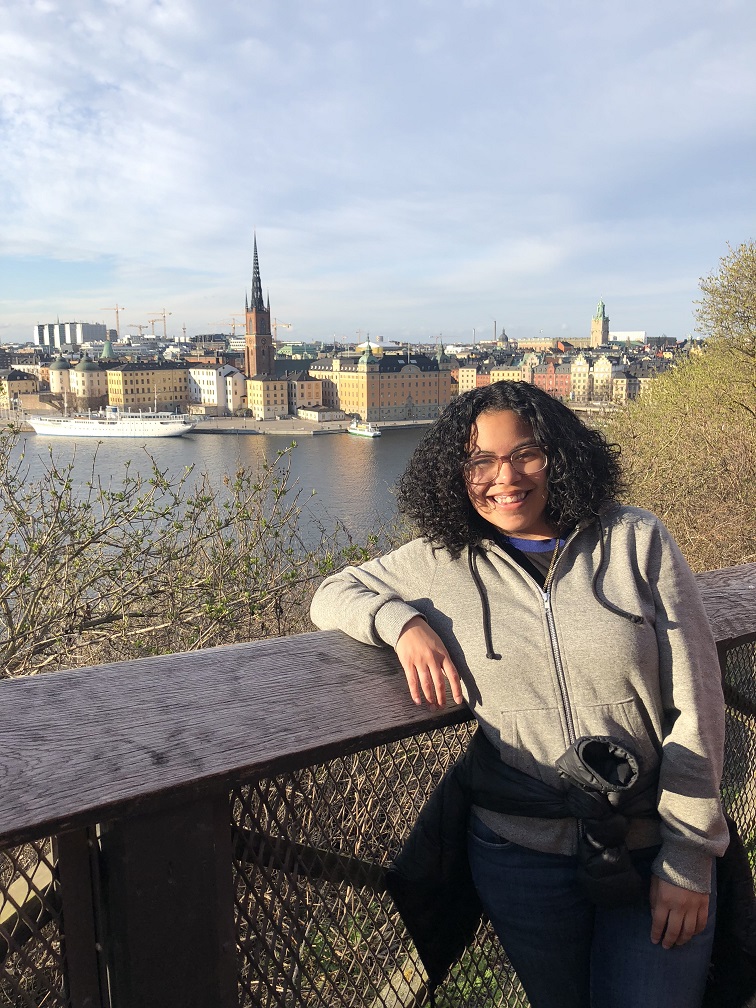The Swedish Alzheimer’s Mutation: Gateway to Modern Neurodegenerative Disease Research
Pending Curriculum Committee Approval
The identification of the "Swedish mutation" revolutionized our understanding of Alzheimer's disease (AD) and neurodegeneration. Specifically, the successful mapping of the mutation from a Swedish early onset Alzheimer's family:
1) provided clear evidence of where the canonical AD gene was located 8 years before the human genome was mapped,
2) armed researchers with a mechanistic understanding of how Alzheimer's destroys the brain, and
3) created a means of testing every AD therapy that has existed in the past 30 years.
In this travel seminar, we will explore the Swedish mutation discovery along with
its many neurobiological and
LEARNING GOALS
Through this travel seminar, students will:
- gain a mechanistic understanding of Alzheimer's Disease (AD) from scientific, clinical and humanistic perspectives;
- contemplate and discuss the implications of the 1992 "Swedish mutation" within the amyloid precursor protein (APP) gene to our current understanding of AD, the molecular mechanisms underlying AD, and the groundbreaking incorporation of the mutation into models used for research and drug development;
- learn and reflect on relevant Nobel-prize winning science in the fields of chemistry, and physiology or medicine;
- gain exposure to a laboratory environment in a research-intensive institute; and
- explore techniques used in AD-research.
SAMPLE ITINERARY*
Day 1: Depart USA for Stockholm, Sweden.
Day 2: Arrival in Stockhom, check-in to accommodations and welcome dinner and orientation with DIS.
Day 3: Welcome and overview of the course at DIS
Day 4: Trip to Karolinska Institute and discussions
Day 5: Discussions
Day 6: Visit to Nobel Prize Musuem
Day 7: Discussions and overview of research modules and choosing labs
Day 8: Free day to explore Stockholm
Day 9: Research Day 1
Day 10: Research Day 2
Day 11: Research Day 3
Day 12: Nobel Prize presentations
Day 13: Departure from Stockholm
*subject to change
IMPORTANT INFORMATION
Dates: May 22 - June 3, 2022 (inclusive of travel days)
Prerequisite: Students must have completed at least one intermediate level cellular/molecular course in either Neuroscience or Biology. Pre-reqs include NS201, NS 202, BI 242, BI 245 or BI 247.
Credits: 1 credit for TX300A
Program Fee: The anticipated fee is $3,900 - 4,200 (depending on enrollment). The program fee includes Skidmore tuition; ground transportation for program excursions; on-site accommodations in shared rooms; some meals; international medical insurance; entrance fees for excursions and activities, and Skidmore faculty. Students will purchase their own flights and are responsible for meals not provided by the program. There is no financial aid for this program.
Students will be responsible for any required visas to enter Sweden and any COVID testing require to travel to Stockholm and return to the US.
Meals and Accommodation: Students will stay in double rooms in local hotels or apartments provided by DIS. Some group meals are included.
Flights: Students will be responsible for booking their own flights. OCSE will send students a recommended flight.
Application Process: The deadline for applications is February 15, 2022. Students are required to apply for Travel Seminars through the MyOCSE portal. Applications will be reviewed and students will be notified of acceptances in late February.
Class of 2022 Students: Seniors are welcome to participate in any of our spring or summer travel seminars. For the Sweden travel seminar, students will have two options. First, students can be reclassified as August graduates and the credits will be counted towards your degree (and show on your transcirpt). Second option is to take this travel seminar as a post-grad course and your graduation date will remain as May. The course and grade will be posted to your transcript as a post-grad course (not counted towards your degree nor factored into your GPA). Don't worry, with either option, you'll still be able to walk on graduation day!
QUESTIONS?
Stop by the OCSE office (Starbuck 202) or contact Professor Sarita Lagalwar (slagalwa@skidmore.edu) directly.